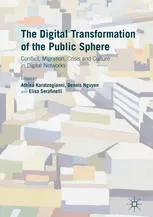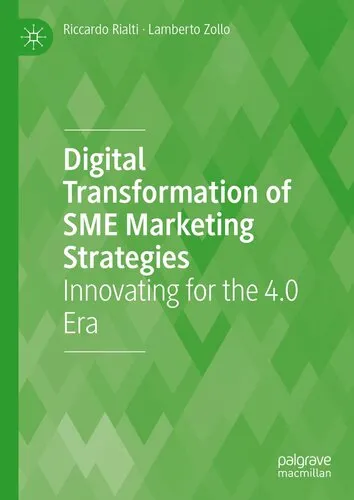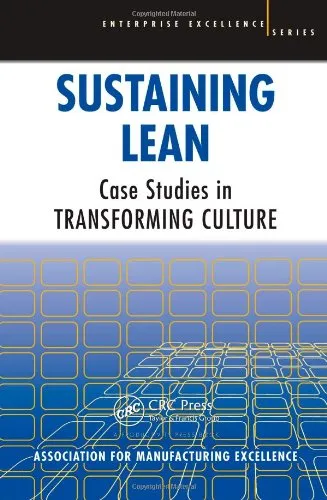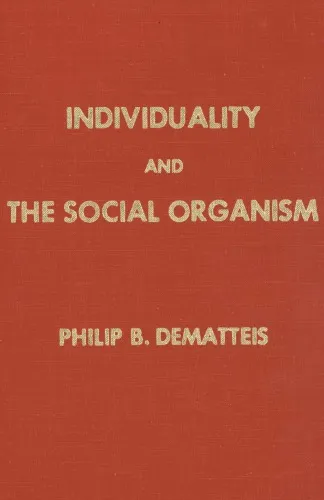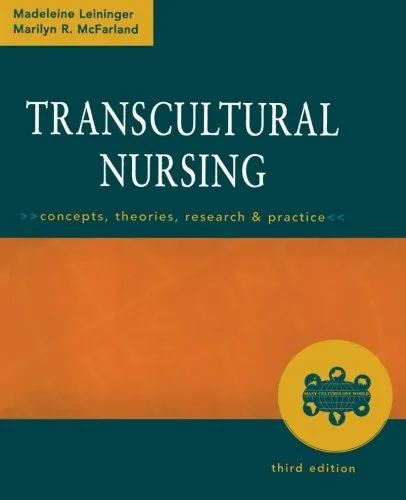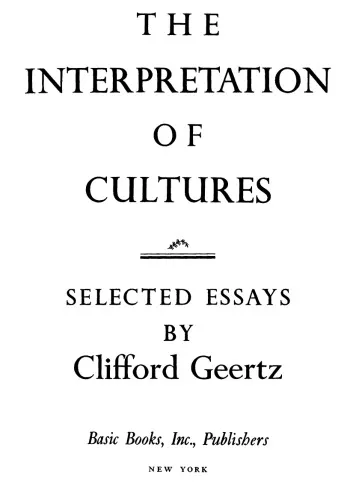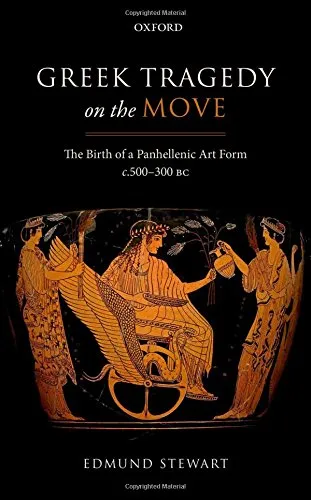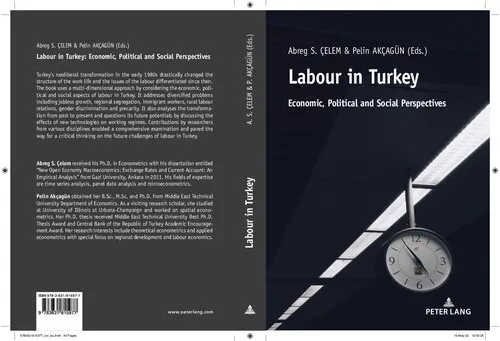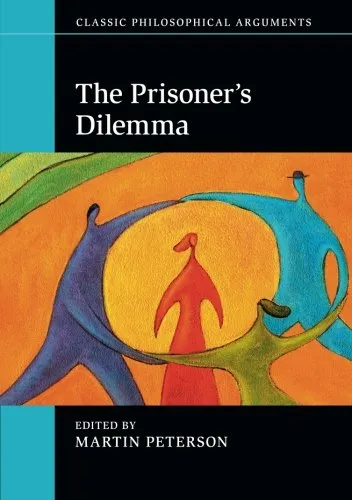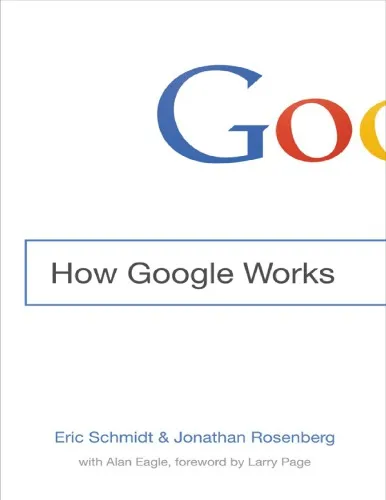The Digital Transformation of the Public Sphere: Conflict, Migration, Crisis and Culture in Digital Networks
4.5
بر اساس نظر کاربران

شما میتونید سوالاتتون در باره کتاب رو از هوش مصنوعیش بعد از ورود بپرسید
هر دانلود یا پرسش از هوش مصنوعی 2 امتیاز لازم دارد، برای بدست آوردن امتیاز رایگان، به صفحه ی راهنمای امتیازات سر بزنید و یک سری کار ارزشمند انجام بدینکتاب های مرتبط:
مقدمهای بر کتاب: تحول دیجیتال در حوزه عمومی
کتاب The Digital Transformation of the Public Sphere: Conflict, Migration, Crisis and Culture in Digital Networks به سردبیری آتنا کاراتزوگیانی، دنیس نگوین و الیزا سرافینلی، اثری جامع و پژوهشی برای درک نقش تغییرات دیجیتال در شکلدهی حوزه عمومی در عصر شبکههای اجتماعی و تحول دیجیتال است. این کتاب با هدف بررسی چگونگی تأثیرگذاری فناوریهای دیجیتال بر فرهنگ، مهاجرت، بحرانها و مناقشات اجتماعی تدوین شده است.
خلاصهای جامع از کتاب
در این کتاب تلاش شده است تا حوزه عمومی به عنوان یک بستر میانرشتهای از لحاظ تاریخی، اجتماعی، و فناوری مورد بررسی قرار گیرد. تأکید اصلی این پژوهش بر تغییرات ساختاری است که بر اثر دیجیتالیزه شدن جامعه در مفهوم حوزه عمومی رخ داده است. این اثر پژوهشی شامل مطالعهای عمیق در زمینه تأثیرگذاری شبکههای دیجیتال بر بحرانهای انسانی (مانند جنگ، مهاجرت و بلایای طبیعی)، ایجاد مفاهیم جدید فرهنگی، و تعامل مردم با رسانههای جدید است. هر فصل از کتاب به بررسی زوایای مختلف این موضوع میپردازد و از چارچوبهای نظری متنوع علوم اجتماعی، فرهنگی و مطالعات انتقادی استفاده میکند.
نویسندگان با استفاده از مفاهیمی همچون Actor-Network Theory، power dynamics in digital platforms و همچنین algorithmic governance، نشان میدهند که چگونه قدرت، اطلاعات و امکان ارتباطات در شبکههای دیجیتالی بازتوزیع شدهاند. بدینترتیب، مفاهیم نوظهوری نظیر digital activism، digital citizenship و networked publics در طول کتاب تحلیل شده و پیامدهای آنها بر جوامع انسانی به تصویر کشیده شده است.
نکات کلیدی کتاب
- تأثیر فناوریهای دیجیتال بر تحول ساختارهای اجتماعی و سیاسی
- نقش شبکههای دیجیتال در ایجاد اشکال جدید مشارکت مدنی و سیاسی
- تداخل میان فرهنگ و رسانههای دیجیتال در عصر globalization
- نقد و تحلیل تأثیر social media platforms بر نابرابری اطلاعاتی
- ارائه رویکردهای نظری میانرشتهای برای مطالعه حوزه عمومی دیجیتال
نقل قولهای معروف از کتاب
"The concept of the public sphere in the digital age is not a mere mirror of its traditional counterpart; it is a dynamic, fluid, and contested terrain shaped by technological possibilities and sociopolitical struggles."
"Crisis and conflict are increasingly mediated by digital platforms, making them both a site of social transformation and contestation."
چرا این کتاب اهمیت دارد؟
این کتاب نهتنها برای پژوهشگران حوزههای علوم اجتماعی و مطالعات فرهنگی نماگانی مفید است، بلکه برای سیاستمداران، فعالان اجتماعی و چهرههای فرهنگی نیز درکی بهتر از نقش دیجیتالیزه شدن جوامع فراهم میآورد. با توجه به تأثیرات گسترده فناوریهای نوین بر زندگی روزمره و سیاستگذاری، این اثر یکی از منابع اصلی در مطالعه حوزه عمومی دیجیتال محسوب میشود. همچنین، این کتاب نشاندهنده پیچیدگیهایی است که درک ما از قدرت، حاکمیت و تعامل انسانی را به چالش میکشد.
Introduction to "The Digital Transformation of the Public Sphere: Conflict, Migration, Crisis and Culture in Digital Networks"
"The Digital Transformation of the Public Sphere" examines the evolving dynamics of how digital technology reshapes our societal conversations, global conflicts, migration narratives, and cultural discourses. Edited by Athina Karatzogianni, Dennis Nguyen, and Elisa Serafinelli, this book offers a deep dive into the intersections of networked media, public debates, and the digital transformation's impact on contemporary society. Through thematic analysis of conflict, crisis, and culture, this work provides a critical understanding of how digital networks redefine the public sphere, both as a platform for dialogue and a battleground for ideological and political confrontations.
Detailed Summary of the Book
The book explores the role of digital technologies in shaping the modern public sphere, focusing on four interconnected themes: conflict, migration, crisis, and culture. The public sphere, previously conceptualized as a space for rational discourse and democratic decision-making, has undergone a seismic transformation due to the rise of digital platforms. These technologies have amplified voices, decentralized communication, and introduced complex dynamics that blur the boundaries between information, activism, and propaganda.
Each chapter examines a specific aspect of this transformation, offering insights based on interdisciplinary approaches, ranging from media studies to political science and sociology. From the digital activism of grassroots movements to the role of algorithms in shaping public opinion, the contributors provide case studies and empirical data to assess the evolving implications of digital networks.
Contentious debates surrounding migration and identity also take center stage, highlighting how online platforms both empower marginalized voices and fuel polarizing narratives. Similarly, the book delves into how digital tools have been instrumentalized during crises—be it natural disasters, political upheavals, or humanitarian challenges. Ultimately, this work underscores the need to critically evaluate the digital transformation of the public sphere, balancing its democratic potential with the risks of misinformation, surveillance, and fragmentation.
Key Takeaways
- Digital technologies have revolutionized the public sphere, introducing new opportunities for dialogue but also increasing polarization, echo chambers, and misinformation.
- Conflict and crises are now mediated through digital networks, where narratives are shaped in real-time, often with far-reaching societal implications.
- The digital realm offers a platform for marginalized communities but is also exploited to spread propaganda and sow division.
- The intersection of migration, identity politics, and digital platforms highlights the dual role of technology as both a disruptor and an enabler for marginalized voices.
- Understanding the digital transformation of the public sphere is vital for addressing its challenges, from algorithmic biases to the commodification of discourse.
Famous Quotes from the Book
"The digital public sphere is neither inherently liberating nor inherently oppressive; its power lies in its ability to amplify human agency, for better or for worse."
"Digital networks do not just inform public debate—they actively construct the frameworks within which public understanding of crises and conflicts unfolds."
"Connectivity is not synonymous with inclusion; rather, the digital divide reveals itself in new and ever-evolving forms."
Why This Book Matters
In an era where digital technologies shape nearly every facet of human interaction, this book serves as a critical resource for scholars, policymakers, and citizens alike. By unpacking the complexities and contours of the digital public sphere, it urges readers to think critically about what is at stake in the tension between liberation and control.
As digital platforms become the primary arenas for public conversation, the integrity of democratic discourse depends on informed discussions and research. The book provides invaluable context for understanding the challenges of misinformation, the potential for algorithmic manipulation, and the ethical dilemmas of digital engagement.
Furthermore, with its focus on urgent global issues—migration, identity, conflict, and cultural shifts—this work emphasizes the necessity of addressing digital inequalities and fostering inclusion. It provides a balanced narrative that does not shy away from identifying the risks inherent in the digital transformation of our public lives while acknowledging its capacity for fostering innovation, creativity, and justice.
دانلود رایگان مستقیم
شما میتونید سوالاتتون در باره کتاب رو از هوش مصنوعیش بعد از ورود بپرسید
دسترسی به کتابها از طریق پلتفرمهای قانونی و کتابخانههای عمومی نه تنها از حقوق نویسندگان و ناشران حمایت میکند، بلکه به پایداری فرهنگ کتابخوانی نیز کمک میرساند. پیش از دانلود، لحظهای به بررسی این گزینهها فکر کنید.
این کتاب رو در پلتفرم های دیگه ببینید
WorldCat به شما کمک میکنه تا کتاب ها رو در کتابخانه های سراسر دنیا پیدا کنید
امتیازها، نظرات تخصصی و صحبت ها درباره کتاب را در Goodreads ببینید
کتابهای کمیاب یا دست دوم را در AbeBooks پیدا کنید و بخرید
1296
بازدید4.5
امتیاز0
نظر98%
رضایتنظرات:
4.5
بر اساس 0 نظر کاربران
Questions & Answers
Ask questions about this book or help others by answering
No questions yet. Be the first to ask!
